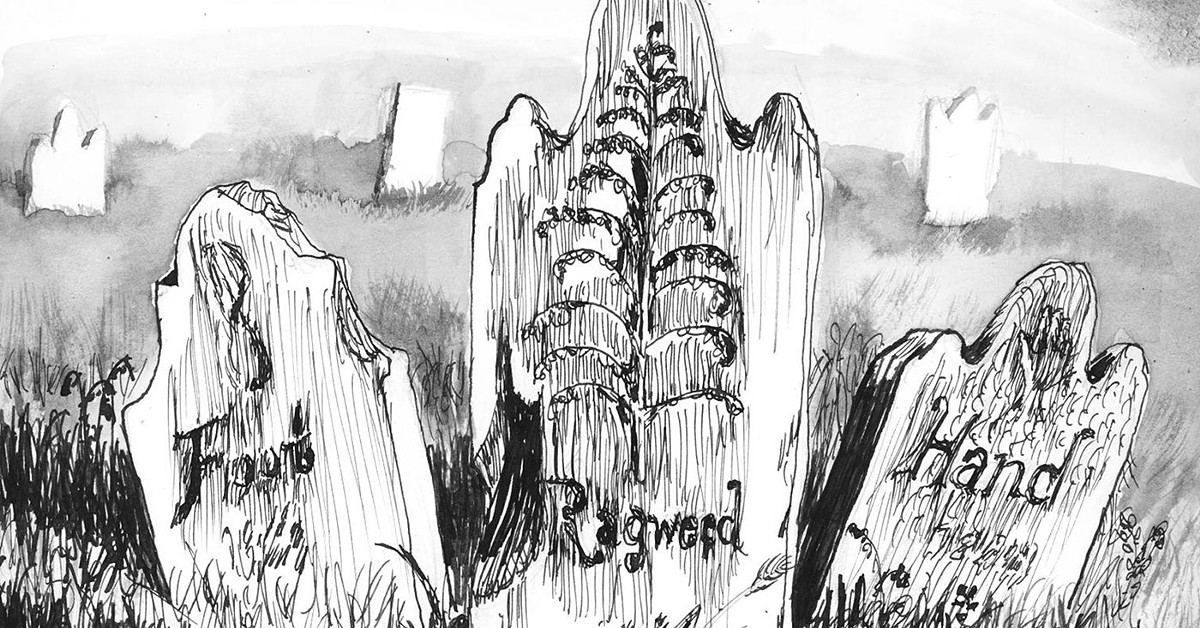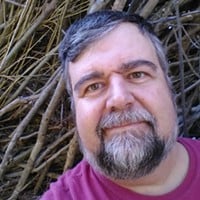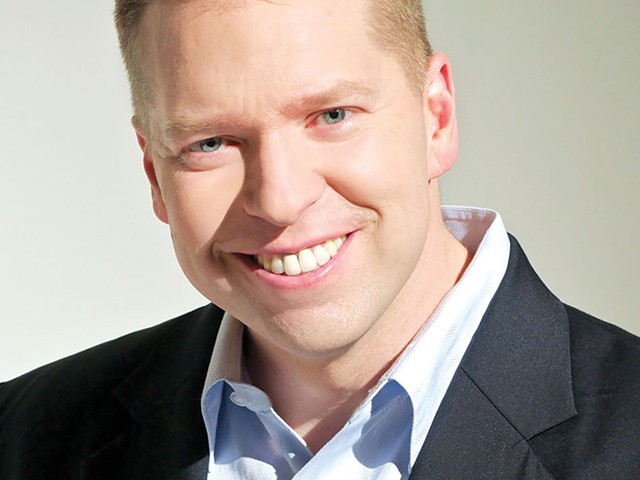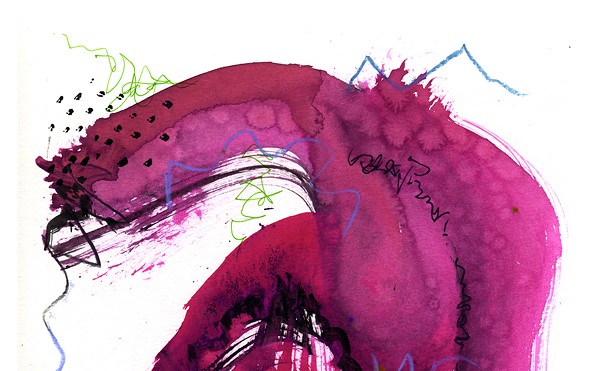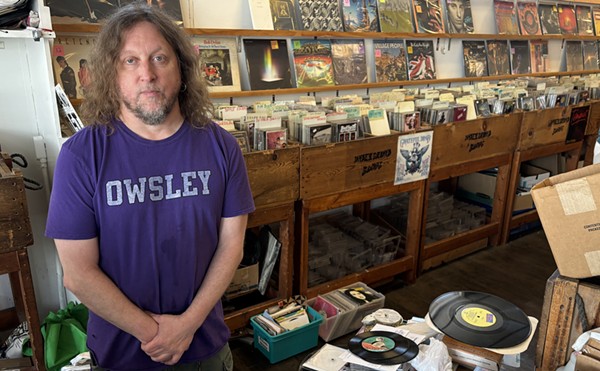Introducing Lee Pennington at anything less than book-length is a challenge. Where does one start? And how does one keep focused on an individual skill, series of achievements or artistic pursuits? Do we look toward the enigmatic sculptures on Easter Island, as he sees them, in some of his most prominent documentary work? Perhaps it is somewhere on the road between the hardscrabble Appalachia that inspires his poetry and Ivy League Columbia University, where the Pulitzer Committee is now considering his nomination, the third such accolade to him? Or maybe in classrooms in Harlan County, or Jefferson Community & Technical College, where his decades of teaching creative writing have borne fruit in many hundreds of students’ successes on the page or stage or screen?
However you come to know him, Pennington is worth knowing.
Rev. Carole Mahaffey of Unity of East Louisville Church shared with LEO how she came to be introduced: “I saw a documentary that he had put together called ‘Bosnian Pyramids.’ I was blown away that there are these pyramids all over the world that we don’t know anything about, but they [share] common characteristics. We got to talking, and I went over to his house — and it’s like a micro-Smithsonian. He’s got stuff from all over the world. He lives in a historic home, and he’s just utterly fascinating.” And that’s how the reverend becomes another convert — sharing Pennington’s spirit and teaching as best she can. In her case, it leads to Unity East showing a series of Pennington’s documentaries that runs for several more weeks, Wednesdays at 7 p.m.
For Jill Baker at Winchester Cottage Print, it led to the opportunity to bring out Pennington’s first book in almost a quarter-century. Along with being the publisher, her contributions to the new collection “Appalachian Newground” hew toward collaboration and interpretation — she provided illustrations that bring new perspectives on several of the poems and assorted other pieces (e.g., creative nonfiction, a theatrical piece entitled “Ragweed”). These modest gems about land and nature, communities and individuals found the audience for new Pennington, as witnessed by the three Pulitzer nominations.
Pennington spoke with LEO by phone about how the gap between books came about: “I, at one time, devoted an awful lot of energy to being published. When you get up to 1,300 or 1,400 poems published in 400 or 500 magazines, you’re working pretty hard at it. But there came a time about 20 years ago, I suddenly didn’t feel the need to devote that kind of energy to getting published.”
“I continued to write — never slowed that down, at all. And, at that time, also I became deeply involved in filmmaking. Although I continue to write poetry on a daily basis, the publication interest backed off. I devoted that energy to filmmaking.”
“There were many people asking me to publish a book. Over the last three or five years, I felt my own energy return. The one that I really wanted published was ‘Appalachian Newground.’”
As a documentarian — just as he does with his poetry — Pennington balances a detailed earthiness with a sense of mystery in how mankind shapes the world over the course of time. Last January saw him in Indonesia filming at the peculiar site known as Gunung Padang. This is a combination of man-made structure and nature-made reclamation that does have remarkable commonalities with those pyramids in Bosnia.
The subject matter and discoveries might be enough to blow one’s mind — but Pennington is as much teacher as artist. (“I love teaching as much as anything that I’ve ever done.”) He knows within himself that he just wants to learn, and then he wants to share. Soon he’ll have that film done, and he might head back into writing for publication. Or maybe his next film idea will command his attention. Regularly reaching productive landmarks will provide him with, as he calls it, “a fulfillment kind of feeling.” But it won’t lead to the call to rest. “One of the things that I learned very early: I put all my energy into what I’m doing. I wrote a novel once in 11 days — and I made the mistake of not having something else to connect to after I’d finished it. So all of my energy went into the writing — and on the twelfth day, I might as well have been shot. Even for weeks after that, I had trouble just surviving. It all was gone. But I learned at that point: Don’t let the end of that book be the end of what you’re doing. Already have something in the process.”
The Pulitzer Committee decides on its finalists in December, with the prize awarded in April.

